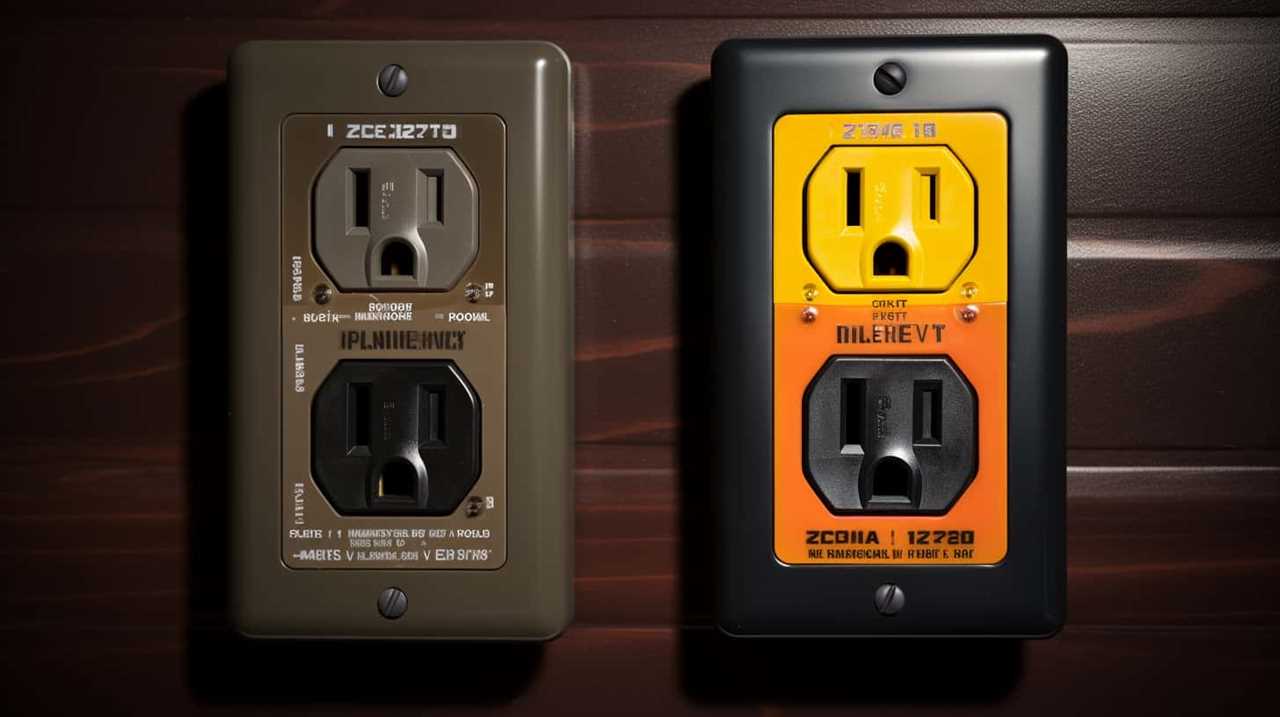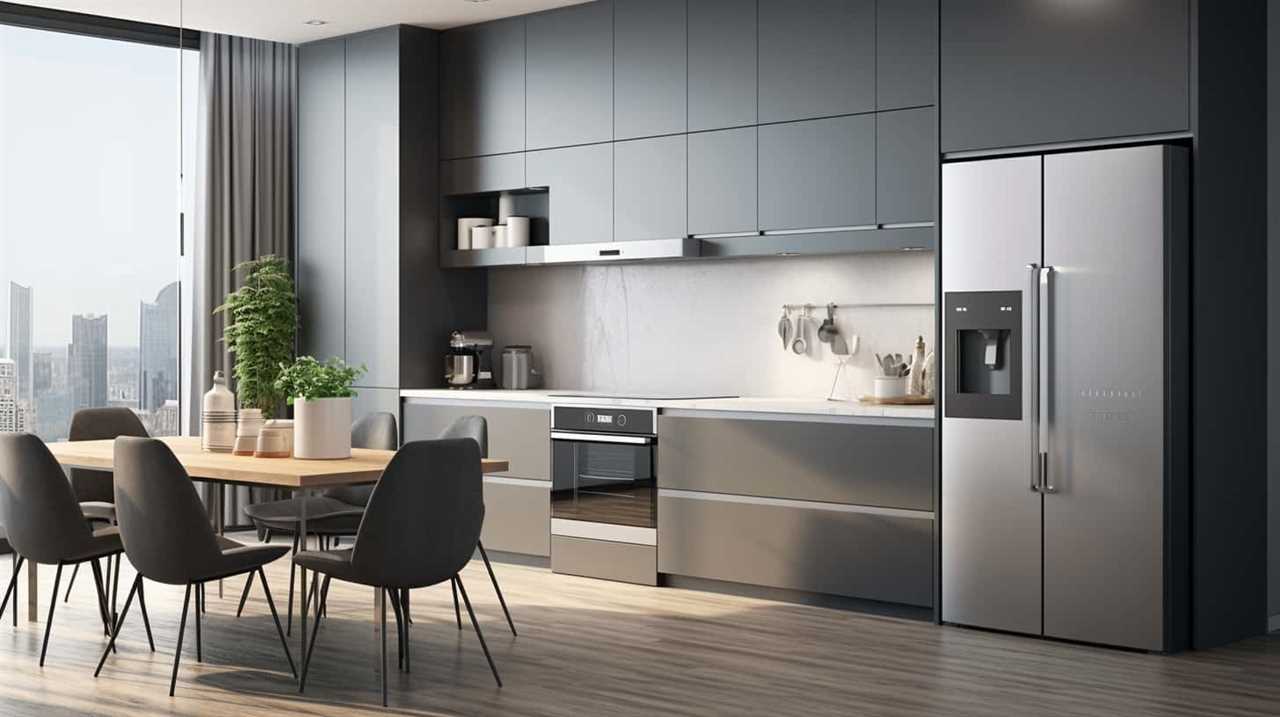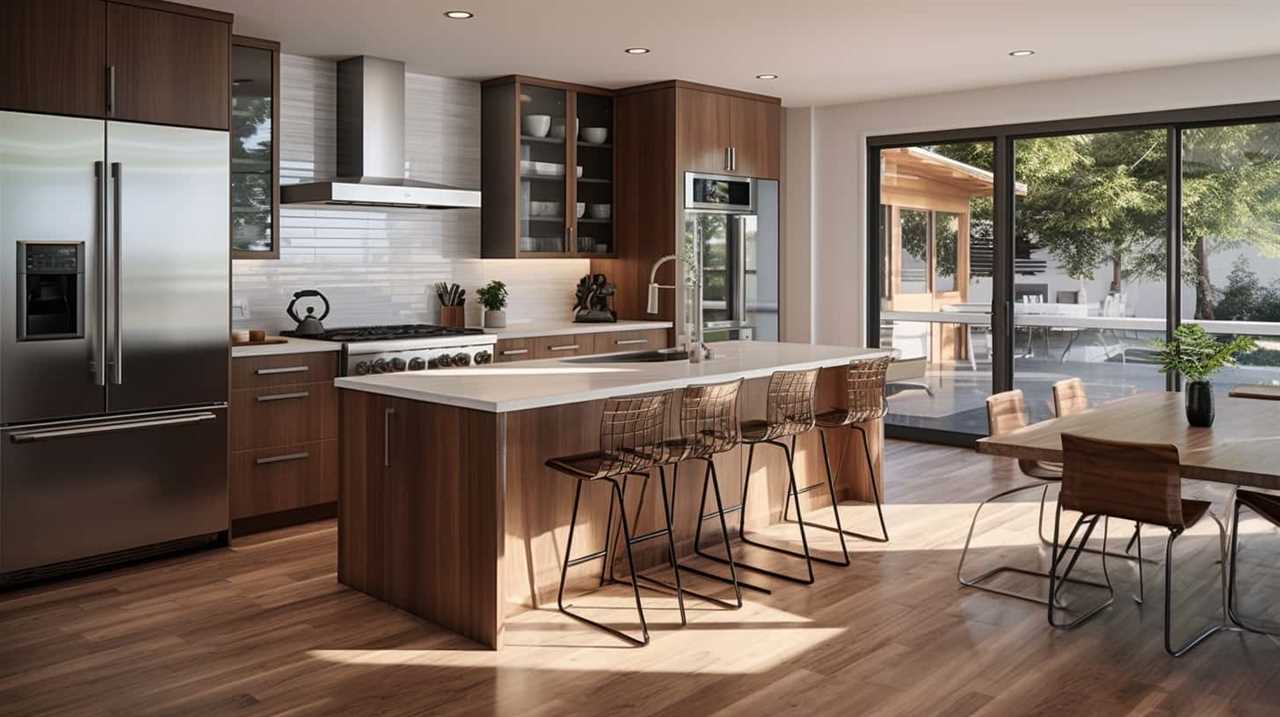When it comes to electrical appliances, it is important to consider the compatibility between the power supply frequency and the appliance itself. This leads to the question: can a 60Hz appliance function properly on a 50Hz power supply?
To address this query, it is crucial to delve into the intricacies of frequency compatibility and explore the potential challenges and solutions associated with operating a 60Hz appliance on a 50Hz power supply. This article aims to provide a comprehensive understanding of the subject matter, catering to an audience seeking mastery in this domain.
By examining the factors influencing appliance compatibility and offering insights into adapting voltage or exploring alternative options, readers will be equipped to make informed decisions regarding the feasibility of using a 60Hz appliance on a 50Hz power supply.
Key Takeaways
- Difference in frequency between an appliance and power supply can lead to reduced performance, overheating, or damage.
- Frequency conversion is necessary to match the required frequency of the appliance.
- Mismatched frequencies can cause slower motor speeds, inaccurate timing, overheating, increased stress on components, reduced efficiency, and potential damage.
- Motor overheating can shorten lifespan or cause failure, while unstable electronic components may lead to malfunctions or errors.
Understanding Frequency Compatibility
Frequency compatibility is a crucial factor in determining whether a 60hz appliance can function properly on a 50hz power supply. The difference in frequency between the appliance and the power supply can result in various issues, including reduced performance, overheating, or even damage to the appliance.

To understand this better, it is essential to consider the concept of frequency conversion. Frequency conversion involves modifying the input frequency of the power supply to match the required frequency of the appliance. However, this process is not always straightforward and may require additional equipment or modifications to ensure proper appliance functionality.
Factors such as voltage, motor speed, and electronic circuitry can also affect appliance compatibility. Understanding these factors and their impact on frequency compatibility is crucial in determining whether a 60hz appliance can work on a 50hz power supply.
Factors Affecting Appliance Compatibility
Understanding frequency limitations is crucial in troubleshooting appliance compatibility. Several key factors come into play when determining whether a 60Hz appliance can operate on a 50Hz power supply.
The first factor is the motor speed, as the frequency directly affects the rotational speed of the motor. A 60Hz motor designed to operate at a specific speed may not function properly when connected to a 50Hz power supply, leading to performance issues or even motor failure.

Another factor is the electronic circuitry within the appliance, which may be designed to operate optimally at a specific frequency range. If the frequency deviates significantly, the appliance may not function as intended or may experience malfunctions.
Understanding these factors is crucial in troubleshooting and assessing the compatibility of 60Hz appliances on a 50Hz power supply.
In the subsequent section, we will explore the potential issues that can arise when attempting to use 60Hz appliances on a 50Hz power supply.
Potential Issues With 60hz Appliances on 50hz Power Supply
When using a 60hz appliance on a 50hz power supply, compatibility concerns arise due to the difference in frequency. This can lead to various issues with the functionality of the appliance, such as slower motor speeds and inaccurate timing.
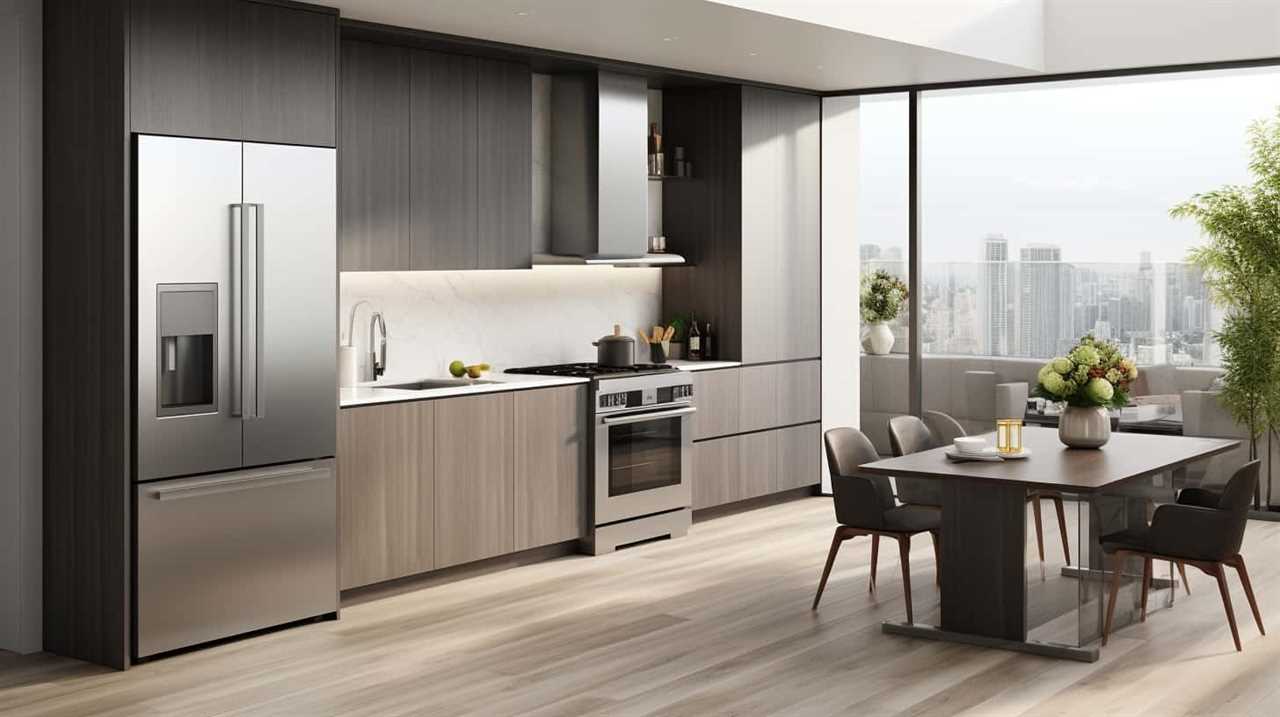
Furthermore, the appliance may be at risk of potential damage, as the higher frequency can cause overheating and increased stress on the components.
Compatibility Concerns With Frequency
There are potential compatibility concerns when using a 60Hz appliance on a 50Hz power supply. The difference in frequency can lead to various issues, such as overheating, reduced efficiency, and even damage to the appliance. To help understand the impact of this frequency difference, let’s take a look at the table below:
| 60Hz Appliance | 50Hz Power Supply | |
|---|---|---|
| 1 | Overheating | Reduced Efficiency |
| 2 | Increased motor wear | Damage to the appliance |
| 3 | Malfunctioning electronic components | Inconsistent performance |
To mitigate these compatibility concerns, an understanding of the power supply and frequency converter options is important. Frequency converters can be used to convert the power supply frequency to match the appliance requirements. This ensures the proper functioning and longevity of the appliance. It is crucial to choose the right frequency converter based on the specific appliance’s power and voltage requirements.
Impact on Appliance Functionality
The frequency difference between a 60Hz appliance and a 50Hz power supply can have significant implications for the functionality of the appliance. The impact on appliance functionality arises from the fact that most appliances are designed to operate at a specific frequency, and any deviation from this can affect their performance.

When a 60Hz appliance is connected to a 50Hz power supply, several potential issues can arise. Firstly, the appliance may not operate at its intended speed or power output, leading to a decrease in performance.
Secondly, the motor in the appliance may overheat due to the frequency mismatch, which can shorten its lifespan or even cause it to fail. Additionally, the appliance’s electronic components may become unstable, resulting in malfunctions or errors.
Therefore, it is crucial to consider the frequency compatibility when connecting a 60Hz appliance to a 50Hz power supply to ensure proper appliance functionality and avoid potential performance issues.
Potential Damage Risks
As a result of the frequency difference between a 60Hz appliance and a 50Hz power supply, potential damage risks can arise, which may impact the functionality and performance of the appliance. When a 60Hz appliance is connected to a 50Hz power supply, it can lead to several issues due to the frequency compatibility mismatch. These potential damage risks include overheating, decreased efficiency, increased wear and tear, and even electrical fires. The table below outlines the potential damage risks associated with using a 60Hz appliance on a 50Hz power supply:
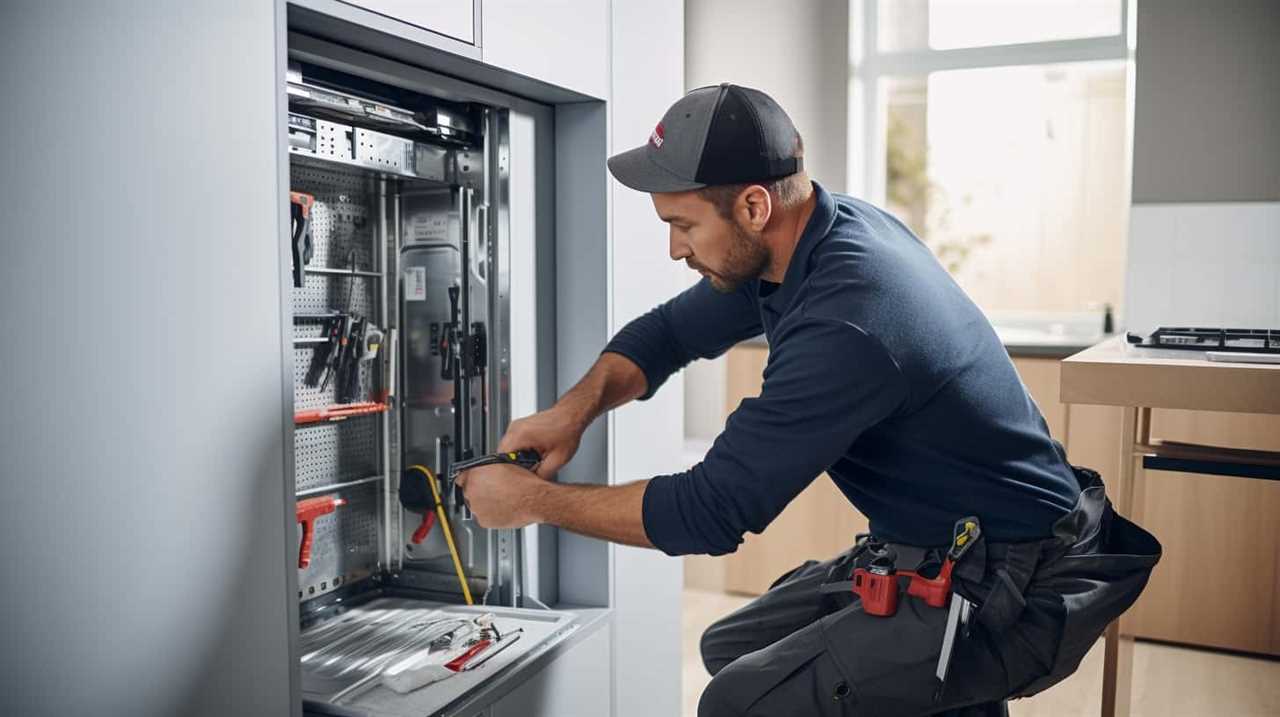
| Potential Damage Risks |
|---|
| Overheating |
| Decreased Efficiency |
| Increased Wear and Tear |
| Electrical Fires |
To prevent these damage risks, it is crucial to ensure that the frequency compatibility between the appliance and the power supply is matched. Using a frequency converter or purchasing a new appliance designed for the specific power supply frequency can help mitigate these risks and ensure safe and optimal operation.
Solutions for Using 60hz Appliances on 50hz Power Supply
In order to use 60hz appliances on a 50hz power supply, one solution is to utilize a frequency converter. These devices can convert the frequency of the power supply to match the appliance’s requirements.
However, it is important to ensure compatibility and safety when using frequency converters, as not all appliances may be suitable for this solution. Additionally, there may be potential performance issues to consider when using a frequency converter, such as reduced efficiency or increased heat generation.
Frequency Converter Options
To address the issue of using a 60hz appliance on a 50hz power supply, one viable solution is to employ a frequency converter. A frequency converter is a device that can convert the frequency of the power supply to match the required frequency of the appliance. There are different types of frequency converters available, including rotary converters, static converters, and electronic converters. Each type has its own advantages and limitations, so it is important to select the right converter based on the specific requirements of the appliance. Additionally, voltage conversion methods may also need to be considered when using a frequency converter, as the voltage of the power supply may differ from the voltage required by the appliance. The table below summarizes the different frequency converter types and their voltage conversion capabilities:

| Frequency Converter Type | Voltage Conversion Method |
|---|---|
| Rotary Converter | Step-up or Step-down |
| Static Converter | Step-up or Step-down |
| Electronic Converter | Step-up or Step-down |
Compatibility and Safety
By employing a frequency converter and ensuring proper voltage conversion, it is feasible to operate a 60hz appliance on a 50hz power supply with compatibility and safety.
When using a frequency converter, it is important to understand the safety considerations involved. The converter must be capable of handling the power requirements of the appliance and should be properly grounded. It is also crucial to ensure that the voltage conversion is accurate to prevent any damage to the appliance or potential safety hazards. Failure to convert the voltage properly can result in overheating, malfunctioning, or even fire.
Therefore, it is recommended to use a high-quality frequency converter that is specifically designed for the task and has safety features such as overload protection and short-circuit protection. It is also advisable to consult with a professional electrician to ensure proper installation and operation.
Potential Performance Issues
When using a 60hz appliance on a 50hz power supply, potential performance issues may arise that require specific solutions to ensure optimal functionality and safety. One of the main problems is the difference in frequency, which can affect the operation of the appliance. Appliances designed for 60hz may experience decreased performance or even malfunction when powered by a 50hz supply. To address this issue, frequency conversion options can be used, such as frequency converters or transformers, to convert the power supply frequency from 50hz to 60hz. Additionally, voltage compatibility must also be considered, as appliances designed for different frequencies may have different voltage requirements. It is important to ensure that the voltage supplied to the appliance is within its specified range to avoid damage or safety hazards.
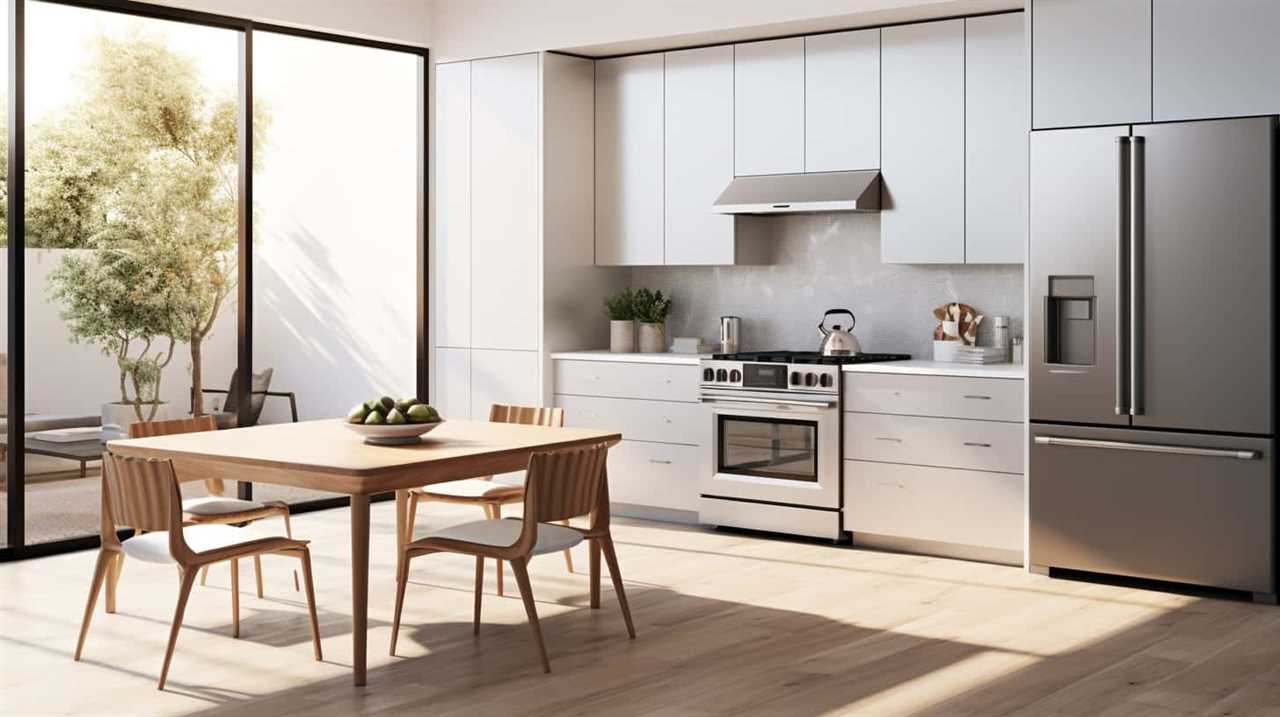
| Potential Performance Issues | Solutions |
|---|---|
| Decreased performance | Frequency converters or transformers to convert the power supply frequency from 50hz to 60hz |
| Malfunction | Ensure voltage compatibility by supplying the correct voltage within the appliance’s specified range |
Adapting Voltage for 60hz Appliances on 50hz Power Supply
The adaptation of voltage for 60Hz appliances on a 50Hz power supply requires careful consideration and proper equipment.
When faced with the challenge of operating a 60Hz appliance on a 50Hz power supply, one option is to use a frequency converter. A frequency converter is a device that converts the frequency of the power supply to match the required frequency of the appliance.
There are different types of frequency converters available, such as rotary frequency converters and static frequency converters. Rotary frequency converters are typically used for larger appliances or industrial applications, while static frequency converters are more suitable for smaller appliances.
It is essential to choose the right frequency converter that can handle the power requirements and ensure a seamless operation for the 60Hz appliance on a 50Hz power supply.

Alternatives to Using 60hz Appliances on 50hz Power Supply
One option for addressing the challenge of operating a 60Hz appliance on a 50Hz power supply is to explore alternative solutions. While frequency converters and voltage adapters are commonly used, there are other alternatives worth considering.
Here are two possible alternatives to using frequency converters and voltage adapters for 60Hz appliances on a 50Hz power supply:
- Variable speed drives: These devices can adjust the speed of the motor to match the frequency of the power supply. By using a variable speed drive, you can ensure that the motor operates at the correct speed, regardless of the frequency.
- Rewinding the motor: In some cases, it may be possible to reconfigure the motor windings to adapt it to the 50Hz power supply. This process involves rewinding the motor coils to match the new frequency, allowing it to operate efficiently.
Conclusion: Making Informed Decisions for Appliance Compatibility
To ensure compatibility between 60Hz appliances and a 50Hz power supply, it is crucial for individuals to make informed decisions based on their specific needs and available alternatives. Understanding the implications of using a 60Hz appliance on a 50Hz power supply is essential in order to avoid potential issues and damages. Here is a table that summarizes the key points to consider when making decisions regarding appliance compatibility:
| Considerations | Implications |
|---|---|
| Power rating | Appliances may not function optimally or may consume more power than intended. |
| Motorized appliances | Motors may run slower and generate excessive heat, leading to reduced efficiency and potential damage. |
| Electronic devices | Clocks, timers, and displays may not function accurately or at all. |
| Heating appliances | Heating elements may take longer to heat up or may not reach the desired temperature. |
Frequently Asked Questions
Are There Any Potential Safety Hazards Associated With Using a 60hz Appliance on a 50hz Power Supply?
Using a 60hz appliance on a 50hz power supply may lead to potential electrical hazards and can negatively impact the performance of the appliance. It is important to consult the manufacturer’s guidelines for compatibility and safety considerations.

Can Using a 60hz Appliance on a 50hz Power Supply Cause Damage to the Appliance?
Using a 60hz appliance on a 50hz power supply may result in potential damage due to the incompatibility of frequencies. It is advised to consult the manufacturer or use a frequency converter to avoid any harm.
Are There Any Specific Types of Appliances That Are More Likely to Have Compatibility Issues When Using Them on a 50hz Power Supply?
Common issues faced when using 60hz appliances on a 50hz power supply include decreased efficiency, overheating, and malfunctioning. To determine if a 60hz appliance can be safely used on a 50hz power supply, consult the manufacturer’s specifications or seek professional advice.
Is It Possible to Modify a 60hz Appliance to Work on a 50hz Power Supply?
Modifying a 60hz appliance to work on a 50hz power supply is possible with the use of frequency converters or a step-up transformer. These devices can adjust the frequency to ensure compatibility and proper functioning of the appliance.
Are There Any Alternatives to Using a 60hz Appliance on a 50hz Power Supply, Such as Purchasing a New Appliance or Using a Voltage Converter?
When considering the compatibility of a 60Hz appliance with a 50Hz power supply, it is important to explore purchasing alternatives such as a new appliance or utilizing a voltage converter for effective operation.
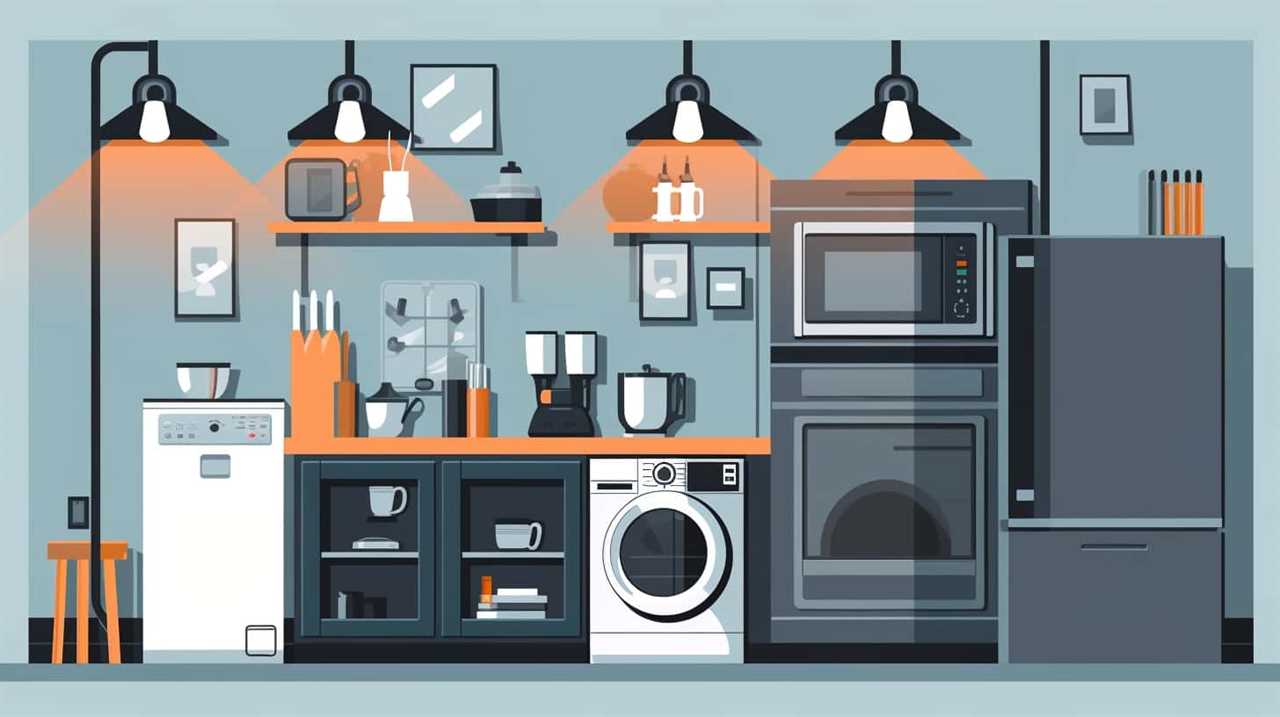
Conclusion
In conclusion, understanding the compatibility of frequency is crucial when using appliances on different power supplies.
While 60hz appliances can work on a 50hz power supply, there may be potential issues such as decreased performance and increased heat generation.
Adapting the voltage or considering alternative appliances designed for 50hz can provide solutions.
Making informed decisions about appliance compatibility ensures optimal functionality and avoids any potential hazards.

